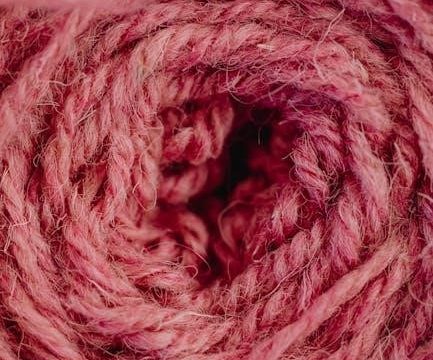What is a 21-Day Detox Diet Plan?
A 21-day detox diet plan is a dietary program that involves eliminating certain foods and focusing on nutrient-dense, whole foods for a period of 21 days․ This type of plan aims to cleanse the body of toxins and promote overall health and well-being․
What is a Detox?
A detox, or detoxification, is a process that aims to remove harmful substances from the body, often through dietary changes and lifestyle modifications․ While the body naturally detoxifies itself through organs like the liver and kidneys, detox programs aim to support these processes and promote overall health․ These programs often involve eliminating certain foods, such as processed foods, alcohol, and caffeine, and focusing on nutrient-rich, whole foods like fruits, vegetables, and lean proteins․ Detox plans may also include other practices like exercise, hydration, and stress management, which can further support the body’s natural detoxification processes․
Benefits of a 21-Day Detox
A 21-day detox can offer several potential benefits, including improved energy levels, clearer skin, and better digestion․ By eliminating processed foods and focusing on whole, nutrient-rich foods, individuals may experience a reduction in inflammation, better blood sugar regulation, and a decrease in cravings․ Additionally, detox programs often emphasize hydration, which is crucial for flushing out toxins and supporting kidney function․ Furthermore, the focus on whole foods can lead to increased nutrient intake, providing the body with essential vitamins and minerals for optimal health․ It’s important to note that the benefits of a detox are not scientifically proven, and individual experiences may vary․

The 21-Day Detox Diet Plan
A 21-day detox diet plan typically involves a structured approach to eating that emphasizes whole, unprocessed foods while eliminating certain foods and drinks․
Foods to Include
A 21-day detox diet plan typically emphasizes whole, unprocessed foods that are rich in nutrients and support the body’s natural detoxification processes․ Here are some common food groups to include in your meal plan⁚
- Fruits⁚ Apples, bananas, berries, citrus fruits, grapes, melons, pears, and pomegranates․
- Vegetables⁚ Broccoli, Brussels sprouts, carrots, celery, cucumbers, garlic, ginger, green leafy vegetables, onions, peppers, spinach, sweet potatoes, and tomatoes․
- Lean Proteins⁚ Chicken, fish, lean beef, lentils, tofu, tempeh, and beans․
- Healthy Fats⁚ Avocados, nuts, seeds, olive oil, and coconut oil․
- Whole Grains⁚ Brown rice, quinoa, oats, and whole-wheat bread․
These foods provide a wide range of vitamins, minerals, antioxidants, and fiber, which can help support your body’s natural detoxification processes․
Foods to Avoid
A 21-day detox diet plan typically involves eliminating certain foods that are considered to be detrimental to health or interfere with the body’s natural detoxification processes․ These foods often include⁚
- Processed Foods⁚ Packaged snacks, fast food, processed meats, and sugary drinks․
- Refined Sugars⁚ White sugar, brown sugar, honey, and high-fructose corn syrup․
- Artificial Sweeteners⁚ Aspartame, sucralose, and saccharin․
- Trans Fats⁚ Found in margarine, fried foods, and some baked goods․
- Alcohol⁚ Beer, wine, and spirits․
- Caffeine⁚ Coffee, tea, and energy drinks․
- Dairy Products⁚ Milk, cheese, and yogurt․
- Gluten⁚ Found in wheat, rye, and barley․
By eliminating these foods, you can give your body a chance to rest and repair, allowing your digestive system to work more efficiently and your body to naturally eliminate toxins․
Sample Meal Plan
Here is a sample meal plan for a 21-day detox diet, keeping in mind that individual needs may vary․ It’s essential to consult a healthcare professional or registered dietitian for personalized advice․
Day 1⁚
- Breakfast⁚ Oatmeal with berries and nuts
- Lunch⁚ Salad with grilled chicken or tofu, quinoa, and vegetables
- Dinner⁚ Baked salmon with roasted vegetables and brown rice
Day 2⁚
- Breakfast⁚ Smoothie with fruits, vegetables, and protein powder
- Lunch⁚ Lentil soup with whole-grain bread
- Dinner⁚ Vegetable stir-fry with tofu or tempeh
Day 3⁚
- Breakfast⁚ Scrambled eggs with spinach and avocado
- Lunch⁚ Quinoa salad with chickpeas, vegetables, and a lemon vinaigrette
- Dinner⁚ Chicken breast with roasted sweet potatoes and asparagus
Remember to stay hydrated throughout the day by drinking plenty of water, herbal teas, and fresh juices․
Tips for Success
Successfully completing a 21-day detox requires dedication and planning․ Here are some tips to help you stay on track⁚
Stay Hydrated
Water is essential for flushing out toxins and keeping your body functioning optimally․ Aim to drink at least eight glasses of water per day, and more if you’re exercising or sweating a lot․ You can also include herbal teas, such as green tea or ginger tea, in your daily intake․ Avoid sugary drinks, as these can hinder your detox efforts and contribute to cravings․ Hydration is crucial for supporting your body’s natural detoxification processes, so make sure to drink plenty of fluids throughout the day․
Listen to Your Body
During a detox, your body may experience some changes as it adjusts to the new dietary plan․ Pay attention to how you feel․ If you experience any unusual symptoms, such as fatigue, headaches, or digestive issues, don’t hesitate to adjust your diet or consult with a healthcare professional․ It’s important to listen to your body’s signals and make adjustments as needed․ Remember, this is a process of cleansing and healing, and it’s essential to prioritize your well-being throughout the journey․
Don’t Be Afraid to Ask for Help
Embarking on a 21-day detox can be a transformative experience, but it’s also a journey that requires support․ Don’t be afraid to reach out to a healthcare professional, registered dietitian, or a certified health coach for guidance and advice․ They can provide personalized recommendations, address any concerns you may have, and help you navigate the detox process effectively․ Remember, you’re not alone, and seeking support can make a significant difference in your success․
Potential Risks and Side Effects
While detox diets can offer benefits, they also carry potential risks and side effects, which vary depending on the individual and the specific plan․
Possible Side Effects
Detox diets can lead to various side effects, some of which are due to the restrictive nature of the plan․ Common side effects include headaches, fatigue, nausea, constipation, and changes in bowel movements․ These side effects are typically temporary and subside as the body adjusts to the new diet․
Additionally, some detox plans may promote excessive calorie restriction, which can lead to nutrient deficiencies and other health problems․ It’s crucial to consult with a healthcare professional before embarking on any detox diet, especially if you have underlying health conditions․
Who Shouldn’t Do a Detox
While detox diets are often marketed as a quick fix for various health concerns, they are not suitable for everyone․ Individuals with certain medical conditions, such as eating disorders, kidney or liver disease, diabetes, and pregnant or breastfeeding women should avoid detox diets․ These diets can exacerbate existing health problems and may even be dangerous․
It’s essential to consult with a healthcare professional before attempting any detox diet, especially if you have any health concerns․ They can provide personalized advice and ensure that detoxing is safe and appropriate for your individual needs․
A 21-day detox can be a good way to kickstart a healthy lifestyle, but it’s important to approach it with caution and consult with a healthcare professional․
Benefits of a Healthy Lifestyle
While a 21-day detox can offer temporary benefits, the true key to long-term health and well-being lies in adopting a sustainable, healthy lifestyle․ This involves making consistent choices that nourish your body and mind, rather than relying on short-term cleanses․ A healthy lifestyle encompasses a balanced diet rich in fruits, vegetables, whole grains, and lean proteins, regular exercise, adequate sleep, stress management techniques, and mindful eating habits․ By prioritizing these aspects, you can support your body’s natural detoxification processes, improve your energy levels, enhance your mood, and reduce your risk of chronic diseases․ Remember, true health is a journey, not a destination, and a healthy lifestyle is a lifelong commitment to your well-being․
Alternatives to a Detox
Instead of embarking on a restrictive 21-day detox, consider incorporating gradual, sustainable changes into your daily routine․ Focus on consuming a balanced diet rich in whole foods, such as fruits, vegetables, lean proteins, and whole grains․ Prioritize hydration by drinking plenty of water throughout the day․ Engage in regular physical activity that you enjoy, whether it’s brisk walking, swimming, or dancing․ Prioritize restful sleep to allow your body to repair and rejuvenate․ Additionally, explore stress-management techniques like yoga, meditation, or spending time in nature․ By making these simple yet impactful adjustments, you can support your body’s natural detoxification processes and promote overall well-being without resorting to extreme measures․







